
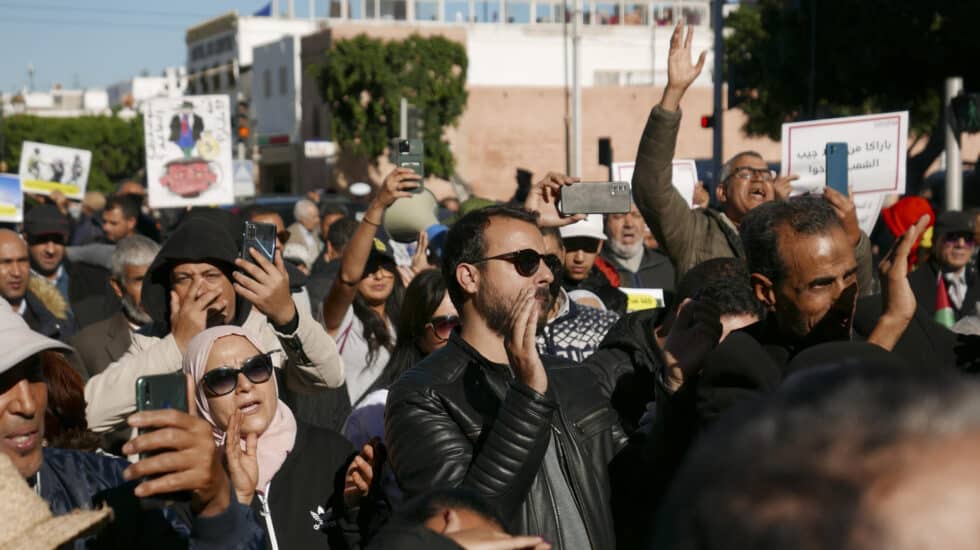
Thousands of people protested this Sunday in Rabat against “rising prices, repression and oppression.”
The most revealing episode of the Moroccan drift occurred a few weeks ago. Former human rights minister Mohamed Ziane, who had been one of them for decades, was arrested at his law firm in Rabat and sent to prison. He is 80 years old and is now being punished for throwing against Mohammed VI, whom he recommended to abdicate in an interview. Independent that kicked up dust on the other side of the strait.
His case is not isolated in a neighboring country that is fond of spying on the opposition and turned into a prison for any dissent. “What happened to Zian, a minister under Hassan II known for his brutal repression, confirms the return of the darkest years,” he notes. Independent Hisham Mansouri, Moroccan investigative journalist in exile in France. “Ziane went so far as to say that even with Hassan II we did not encounter these “dirty” practices, such as allegations of alleged vice and slander, and that there was a minimum of “dignity” among his people, the report says.
dirty practices
The rapidly deteriorating political situation, with the monarch absent and ill, and the maizen – the circle closest to the monarch – hell-bent on wiping out any space for freedom, led the regime to intensify its persecution with increasingly slanderous tactics. FROM Human Rights Watch They assure the newspaper that they have documented “dozens of convictions of journalists and activists on charges related to freedom of speech in clear violation of their rights.” “These trials are ongoing and the authorities have perfected a different approach to the most prominent critics, prosecuting them for crimes unrelated to their statements, such as money laundering, espionage, rape and sexual harassment and even human trafficking,” the organizations added. .
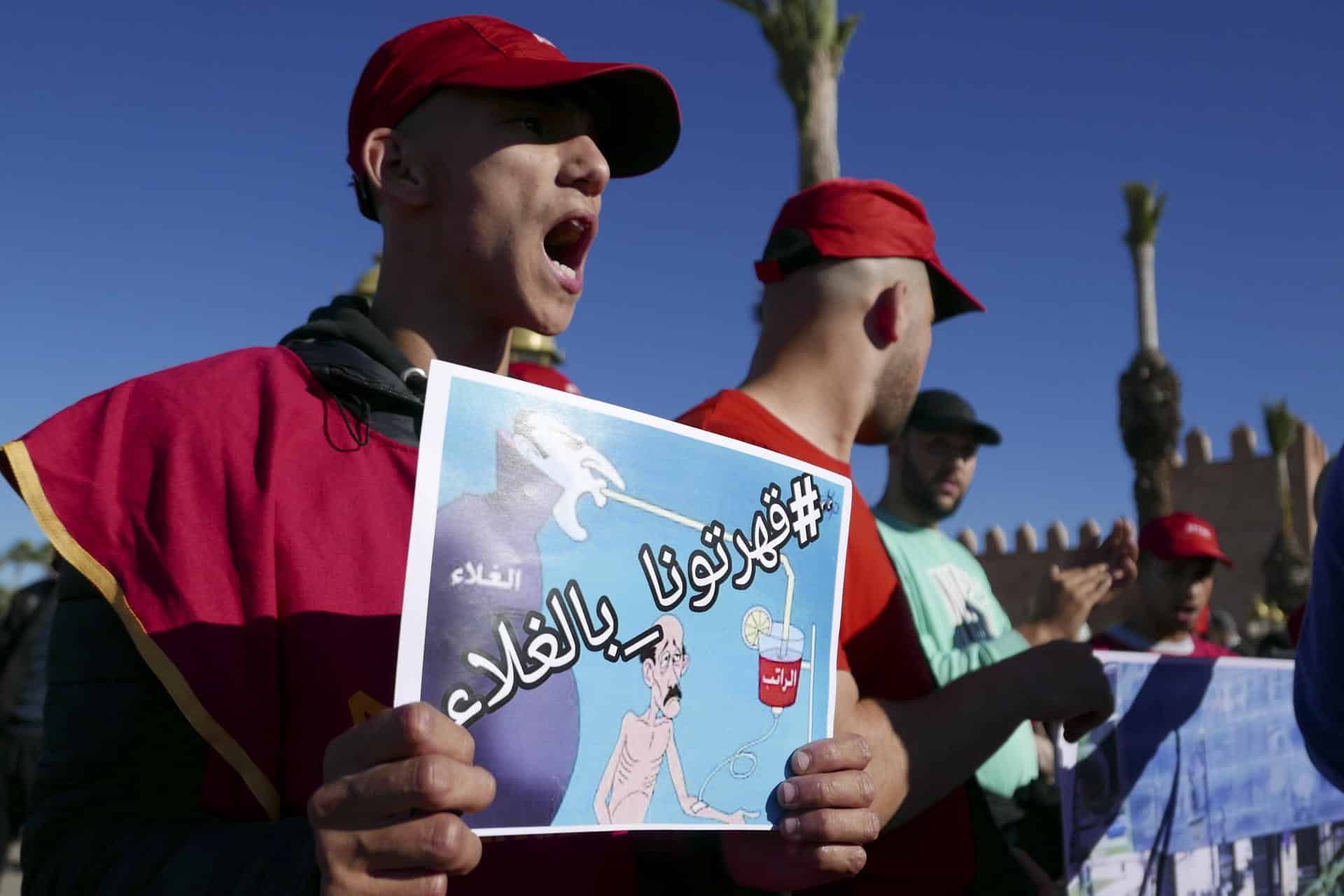
Morocco has taken a different approach to its most notorious critics, prosecuting them for crimes unrelated to their claims, such as money laundering, espionage, rape and sexual assault, and even human trafficking.
The strategy, which has already suffered from whistleblowers such as Omar Radi, Sulaiman Raissuni and Tawfik Buahrin, first spied on programs such as Israel’s Pegasus before being prosecuted and imprisoned on false allegations of sex crimes. The UN working group calls them “arbitrary detentions” and demands their immediate and unconditional release, as well as compensation for the damage caused.
Other journalists like Maatib Monjib they were more fortunate and were expelled. “The situation of freedoms and human rights in Morocco is very bad,” Monjib admits in a statement to the newspaper. “In recent years, the government has increasingly used a strategy of ‘alternative charges’ to prosecute and prosecute opponents, human rights defenders, journalists and cyber activists,” he adds.
All international indicators confirm the brutal repression taking place on the other side of the strait. The Alawite regime is ranked 135 out of 180 countries in the annual Reporters Without Borders rankings. Neighboring Algiers is lagging behind. The latest of the cases that demonstrate the use of the judiciary as an enforcement force for prosecution is Rida Benotman, a human rights defender, sentenced by the Raba Court of First Instance to three years in prison and a fine of 5,000 dirhams (450 euros). According to his relatives and local organizations, he was detained on the basis of a prosecutor’s decision, which “did not meet any of the circumstances authorizing the issuance of an arrest warrant, provided exclusively for Article 608 of the Code of Criminal Procedure.”
Benotman was sent to prison for expressing critical views of the security services on social media. He was a recidivist because he had already spoken out in identical terms a few months ago after being summoned and interrogated by the Judicial Police. His ordeal, remember his relatives and activists, who claim, takes place “under conditions where the repressive machine against all dissidents is intensifying, and in which the authorities continue to carry out repressions against all those whose opinion does not correspond to their orientation.” The ultimate goal is to intimidate those who have not yet challenged the official version. The campaign calling for his immediate release points to this strategy to “judicial police, prosecutors, courts, penitentiaries and defamatory media subordinate to the security forces, among others.”
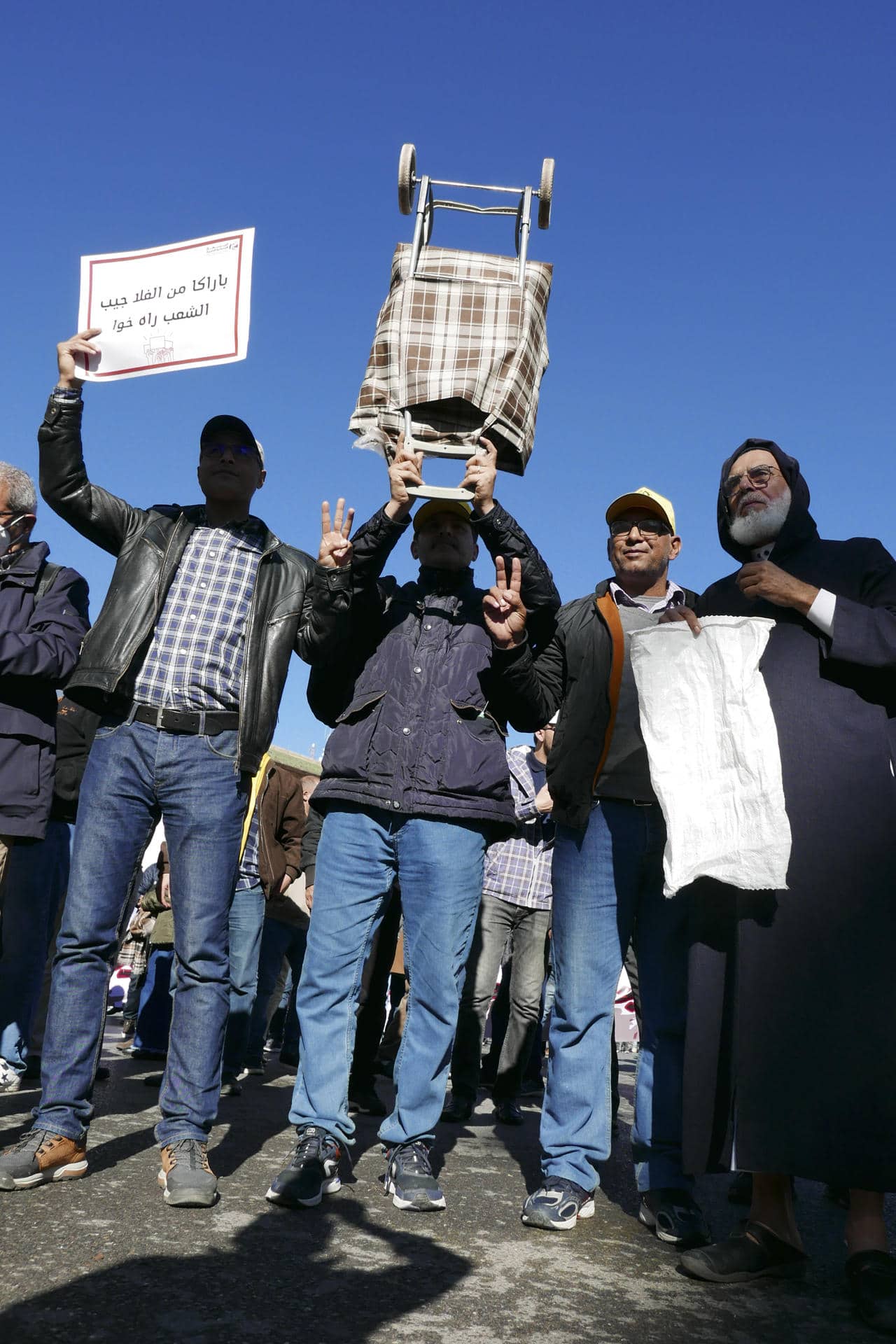
Terrible conditions behind bars
Benotman’s relatives and friends denounce the “appalling conditions” which constitute “a form of abuse”. In his opinion, he suffers from the following practices:
- Extreme isolation. You have no right to see other prisoners.
- Access to the patio is very short and takes place in a very limited space.
- You are not allowed to use the yard two days a week under the pretext of holidays and the absence of corrections officers.
- The number of visits from your relatives does not exceed two per month, for a limited number of your family members.
- The duration of each visit is very short. For the whole family no more than 30 minutes.
- Phone calls are allowed only once a week and under the supervision of prison officials.
The Zian case
Without a free press and widespread surveillance of Moroccan subjects, as well as foreign politicians or journalists, terror settled in the Arab country. All the promises of modernization once made by your rectors turned out to be false. The pattern is repeated without a truce, and Ziane represents the most visible victim: “Because it was impossible to silence him, the regime did everything imaginable: lawsuits with a long list of surreal accusations; smear campaigns, Soviet-style blackmail attempts. Defamation Media even posted photos of him nearly naked in a hotel room with a woman. According to the aforementioned media, this is about Wahib, a former police officer in exile in the United States, who filed a complaint against a close relative Abdelatif Hammoushi for rape,” Mansouri clarifies.
Ziane resisted all pressures, including the sending of her son to prison, an episode that seriously affected her, and continued to demand the distribution of wealth, the trial of those who plundered phosphates and mining products, and recently the reasons for the absence of the king and his long stay abroad. “Given this scenario, the regime decided to put him in jail. Neither his age nor his status. He was released from prison,” he emphasizes.
A wave of pressure on a Moroccan society deprived of any freedom and subject to an endemic economic crisis that sent millions of citizens abroad played a major role last week. Thousands took to the streets of Rabat for two hours to denounce “rising prices, repression, corruption and oppression.” “This country is corrupt!”, “What a shame, we are starving and your children are studying abroad!” shouted the participants, publicly acknowledging the growing discontent of broad sections of the local community, from education to health officials.
The secret services have built a dense network that suffocates the population, depriving them of the opportunity to escape. Human Rights Watch argues that “Moroccan authorities are using indirect and behind-the-scenes tactics to silence critical activists and journalists, creating an ecosystem of repression that aims not only to silence dissenting voices, but also to scare away all potential critics.”
“This country is corrupt!”, “What a shame, we are starving and your children are studying abroad!” shouted the marchers on Sunday.
Albarez is silent
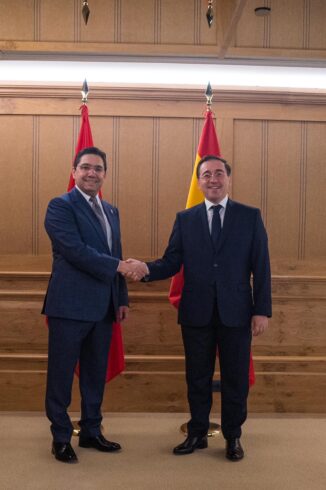
The deliberate exercise of harassment and demolition, which includes unfair trials and “long prison terms on criminal charges unrelated to freedom of expression, harassment and smear campaigns in pro-government media, and harassment of family members of dissidents.” A nightmare that Spain dispassionately visits. Following a request for information made by this newspaper, the Spanish Ministry of Foreign Affairs confirms its silence.
In this fateful context, its head, the socialist José Manuel Albarez, has stepped up his contacts in recent weeks with his Moroccan counterpart, Nasser Burita, whom he affectionately calls “friend.” They met at least on the sidelines of the so-called Global Forum of the Alliance of Civilizations, chaired by pro-Moroccan Miguel Angel Moratinos, and at a meeting of the Union for the Mediterranean, an orphan organization that has no real use. “As for the latest meetings of the minister with his colleague Burita, we reported them publicly,” the ministry responded to Albarez’s absolute silence regarding human rights in Morocco.
Albarez, a diplomat with a map interrogated inside the country, as an outstanding student, applied the principles that both countries signed in April after the historic change in the position of Spain in the Western Sahara dispute, in the deepest parliamentary loneliness and for reasons that they have not been published since March. He does not know the slightest word of mild and bold criticism of the terrible situation in Morocco.
In the joint declaration that marked the beginning of the alleged “partnership”, both countries signed their commitments “based on the principles of transparency, ongoing dialogue, mutual respect and respect for and implementation of the commitments and agreements signed by both parties.” A promise that the government of Pedro Sanchez scrupulously kept by avoiding public mention of the tragic situation in Morocco and even defending the actions of its gendarmerie in killing migrants at the Melilla fence. Rabat, on the other hand, questioned the existence of “land borders” with Spain through official channels and did not relinquish its claim to sovereignty over Ceuta and Melilla.
From the Ministry of Foreign Affairs, who refer to the public statements of the Minister, who is giving press conferences less and less, assure that “the full content of the bilateral negotiations is preserved” in order not to answer what is required. agree to circulate, as was the case with the meetings they are interested in, through the channels through which this ministry provides information,” he adds in reference to some of the increasingly vague and sporadic messages, without the ability to request additional information.
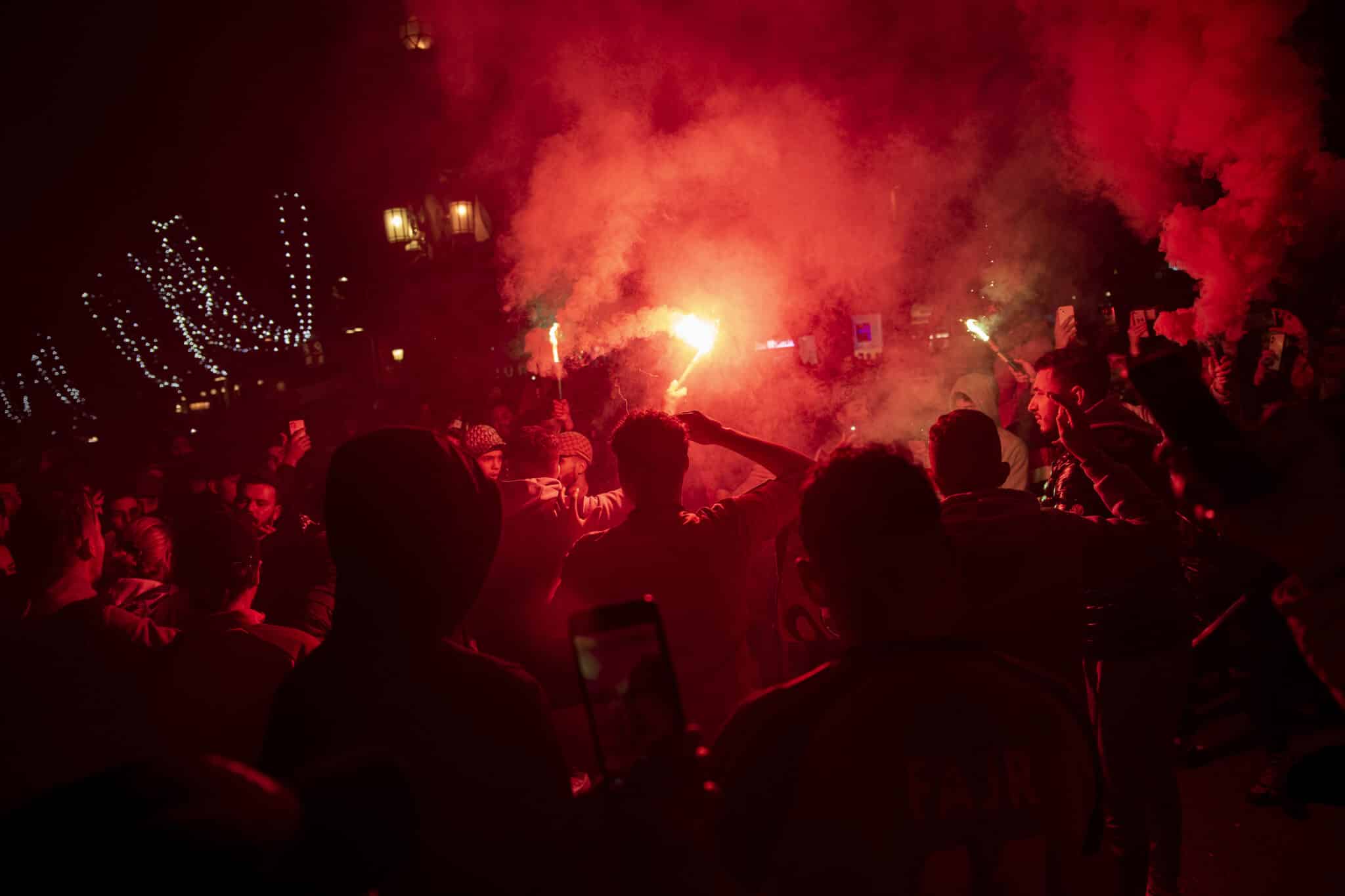
The Spanish government has avoided any criticism of Morocco since March. Rabat, on the other hand, questioned the existence of “land borders” with Spain through official channels and did not renounce its claim to sovereignty over Ceuta and Melilla.
bleak economic future
The economic future looks bleak. In its latest monthly report, the think tank FocusEconomy predicts that the Moroccan economy will grow at one of the slowest rates in the Middle East and North Africa as a result of falling agricultural production and deteriorating trade.
In August, inflation was 8 percent, the highest ever. Drama, to which repressions are added. “This is an effective three-step strategy. The victim stops criticizing the regime, stops writing on the Internet or in the international media and leaves the country,” Monjib warns. “Ziane, because he is older, famous and a monarchist, has the ‘privilege’ to go through the full strategy with all its steps,” concludes this journalist from exile.
Source: El Independiente